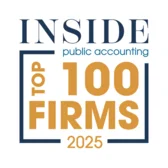The Tax Cuts and Jobs Act[1] (“TCJA”) made various changes to the deductibility of certain entertainment, amusement, recreation, meals, and fringe benefit expenditures[2]. The central theme of the items below was to close the gap where items were previously deductible by an employer and not includible in the income of the employee (i.e., permanent differences with the Treasury losing on both ends). Rather than attempt to tax the recipient, Treasury appears to have generally chosen to deny deductibility to the employer (while retaining non-inclusion by the recipient).
Below is a summary of the relevant provisions impacted by TCJA:
1. Disallowance of Deduction for all Entertainment, Amusement, and Recreation Expenses. Prior to TCJA, entertainment, amusement, and recreation expenses could be deducted (subject to certain restrictions) to the extent the taxpayer could “establish that the item was directly related to, or in the case of an item directly preceding or following a substantial and bona fide business discussion (including business meetings at a convention or otherwise), that such an item was associated with, the active conduct of the taxpayer’s trade or business.” TCJA §13304(a) fully repealed the deductibility of these items, regardless of any proximate business purpose.
2. Disallowance of Deduction for any Qualified Transportation Fringe (as defined in §132(f) Provided to an Employee of the Taxpayer[3]. A qualified transportation fringe includes:
- Transportation in a commuter highway vehicle if such transportation is in connection with travel between the employee's residence and place of employment,
- Any transit pass,
- Qualified parking, and
- Any qualified bicycle commuting reimbursement[4].
Qualified parking. The term “qualified parking” means parking provided to an employee on or near the business premises of the employer or on or near a location from which the employee commutes to work by transit, in a commuter highway vehicle, or by carpool[5].
3. Transportation and Commuting Benefits. Under new §274(l), no deduction is allowed for any expense incurred for providing any transportation, or any payment or reimbursement, to an employee of the taxpayer in connection with travel between the employee’s residence and place of employment (except as necessary for ensuring the safety of the employee).
4. Disallowance of Deduction for Entertainment Tickets, Skyboxes, etc. Prior §274(l) placed further restrictions on the deductibility of entertainment tickets and box suites. 274(l) was fully repealed by TCJA due to the blanket, 100% disallowance of these types of expenses.
5. De Minimis Fringe Eating Facilities Now Subject to 50% Disallowance. Prior §274(n)(2)(B) provided that expenses for food and beverage that were excluded from gross income of the recipient under §132(e) were not subject to the general 50% meals and entertainment disallowance under §274(n)(1). This provision was repealed by TCJA, thereby making such expenses now subject to the general 50% limitation.
6. No Deduction for Meals Provided for Convenience of Employer after 12/31/2025. Effective January 1, 2026, new §274(o) provides that no deduction is allowed for any expense for a de minimis fringe eating facility (§132(e)) or any meal provided for the convenience of the employer (under §119(a)).
Given these changes by the TCJA, the following is a brief discussion of the remaining deductibility of items for taxable years starting after December 31, 2017:
In order for meals expense to be deductible, it must first pass muster as ‘ordinary and necessary’ under §162 or §212. Further, the expense must be directly related to or associated with the business or have a business purpose. If the meal is for goodwill or to make a client view your company favorably, rather than having a direct business purpose, such as a sales pitch, the expense will not be deductible. For all meals expenses, proper documentation that provides an explanation of the business purpose for each event should be retained. To the extent an expense meets these criteria, the following items are generally 100% deductible:
- Recreational activities and/or facilities furnished primarily for the benefit of employees for recreational, social, or similar activities. An example of this would be a holiday party for your office or taking your employees to a sporting event. However, this exception does not apply if the purpose of the event is primarily for the benefit of officers, highly compensated employees, or shareholders.
- Lodging and facilities charges (excluding meals) for business meetings or business travel, such as hotel rooms and conference facilities.
- Any expenses that are treated as compensation to the recipient (i.e., an employee per diem meal allowance).
The following would be examples of expenses subject to the 50% limitation §274(n):
- Food and beverages provided for employees on the employer’s business premises, such as in a cafeteria.
- Meals provided at a shareholder or employee business meeting.
- Meals for officers or employees traveling for business purposes.
- Meals provided during business meetings held with clients. However, in order for the expense to qualify as a business expense, a business purpose for the meeting must be documented, and the taxpayer or an officer, owner, or employee of the taxpayer must be present for the meal. There is also a “reasonableness” test associated with this limitation and the expense should not be considered “lavish or extravagant.”
To learn about how the changes in the deductibility of certain fringe benefit expenditures impact your business, contact Ryan Mark at ryan.mark@hcvt.com.
[1] P.L. 115-97
[2] TAJA, §13304
[3] New §274(a)(4)
[4] 132(f)(1)
[5] §132(f)(5)(C)


